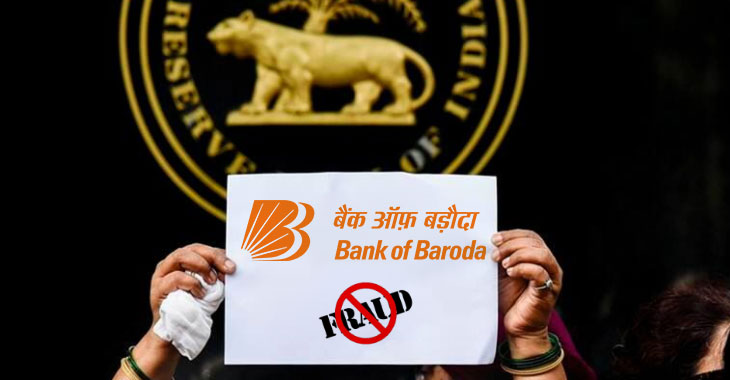On 10th October, the Reserve Bank of India (RBI) imposed a ban on the Bank of Baroda’s mobile app ‘bob World’ for onboarding new clients due to a massive fraud scandal. In a startling revelation, an internal audit conducted by the state-owned bank across 7,000 branches uncovered that the bank’s agents had surreptitiously withdrawn ₹22 lakhs from customer accounts.
The trouble began back in November 2021 when the Bank of Baroda launched its banking app, promising customers a comprehensive platform for saving, investing, borrowing, and shopping. To ensure its success, the bank adopted an aggressive strategy, offering special benefits to customers for various transactions. Points earned from these transactions had monetary value, and customers could redeem them for online shopping. To further boost the app’s adoption, the bank pressured its staff to onboard a substantial number of customers daily.
However, unrealistic targets set by the management led some employees to resort to unscrupulous tactics. They downloaded a list of bank accounts not linked to any mobile number and input random numbers, including their own or their relatives’ phone numbers. Once an account was linked, they could complete the app registration using their own devices, effectively gaming the system. This deceitful strategy gained popularity, spreading to Bank of Baroda staff in multiple regions, including Uttar Pradesh, Rajasthan, Gujarat, and Jharkhand.
In some instances, customers with basic feature phones that did not support the app were brought to the bank, where staff removed their SIM cards and inserted them into their smartphones to complete the registration process. The result was a surge in app downloads and sign-up metrics, which the management celebrated as a resounding success. Shockingly, Bank of Baroda whistleblowers alleged that these fraudulent practices had the tacit approval of the zonal and head offices, highlighting the desperate pursuit of success at any cost.
Furthermore, concerns were raised about the bank’s lack of safeguards to prevent the same mobile number from being linked to multiple accounts. When questioned about this by Al Jazeera, the bank adamantly denied the issue, claiming that each ‘bobWorld’ account had a unique mobile number associated with it. However, investigative efforts by The Reporter’s Collective and Al Jazeera revealed that, on average, 47 accounts were linked to the same mobile number.
This lack of oversight allowed unscrupulous individuals to gain access to customer’s bank accounts, facilitating unauthorized money transfers and transactions with the OTPs sent to their devices. As a result, some bank agents in rural areas managed to siphon off ₹22 lakhs from customer accounts.
The situation was exacerbated by the internal audit conducted by the bank, as it was discovered that the Bank of Baroda employed its own staff to oversee the audit process. Typically, an independent party is hired to conduct such audits to ensure objectivity and thorough examination. However, using their own employees in this critical process raised concerns about potential manipulation. The audit process was further marred by allegations that the bank’s regional offices instructed auditors to forge documents, including customer signatures and thumbprints on blank forms, filling them with necessary details and backdating them. This suggested that the audit was more of a charade aimed at concealing problems rather than revealing the truth.
This scandal bears resemblance to previous cases, such as the Wells Fargo bank scam in the United States, where staff opened unauthorized accounts, forged signatures, and even stole money from customer accounts, with the complicity of top management in covering up these activities.
The root cause of such scandals often lies in the pressure to meet unrealistic goals and sales targets, which can create incentives for unethical behavior. In the case of Bank of Baroda, the pursuit of group targets led to a slippery slope, where individuals ignored ethical concerns to avoid disrupting the group dynamic.
The RBI has taken notice of the situation and is expected to oversee a cleanup of the bank. While some consequences may follow, the scandal may not significantly disrupt the status quo. Unfortunately, such incidents are recurrent in the corporate world, highlighting the need for organizations to carefully consider the ethical implications of their goals and targets.
Exciting news! We’re now on WhatsApp Channels too. Subscribe today by clicking the link and stay updated with the latest insights in the startup ecosystem! Click here!
The Bank of Baroda is currently under scrutiny for a widespread fraudulent scheme that has raised serious questions about the bank’s internal controls, auditing practices, and the pressure to meet unrealistic targets. The consequences of this scandal remain to be seen, but it underscores the recurring issue of unethical behavior driven by high-pressure sales environments.
Source: https://bit.ly/3tC01Sn



![[CITYPNG.COM]White Google Play PlayStore Logo – 1500×1500](https://startupnews.fyi/wp-content/uploads/2025/08/CITYPNG.COMWhite-Google-Play-PlayStore-Logo-1500x1500-1-630x630.png)